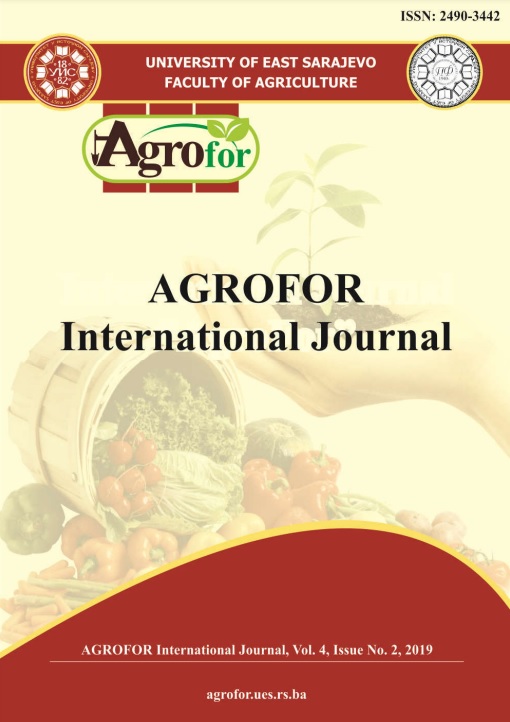ALTERNATIVE SUBSTRATE USE IN SAGE TRANSPLANTS PRODUCTION (SALVIA OFFICINALIS L.)
DOI:
https://doi.org/10.7251/AGRENG1902035ZAbstract
Mushroom production has become more popular in our environment. The most common cultivated mushroom is Agaricus bisporus. After mushrooms are harvested a large amount of used compost remains. This compost is a good material and producers used it as alternative substrate in plant production. The benefits of this compost are numerous like high content of organic matter and the rich mineral composition. The aim of this study was to determine the effectiveness of the use of spent mushroom compost (as alternative substrate) on growth and development of roots and above-ground parts of sage transplants (Salvia officinalis L.). Measurements of morphological parameters of plants (plant height, number of leaves, number of branches and plant diameter) were performed, as well as determination of fresh and dry weight of roots and above-ground parts of transplants. Application of spent mushroom substrate in the production of sage Salvia officinalis L. positively influenced growth and development as well as fresh and dry weight of roots and above-ground parts of treated plants compared to nontreated plants during transplanting growing stage. Plant height (+104%), number of leaves (+65%), number of branches (+143%), plant diameter (89%), were significantly increased by the spent mushroom compost application compared to
the control - commercial substrate.

